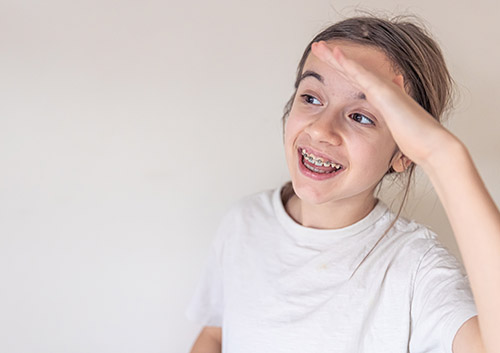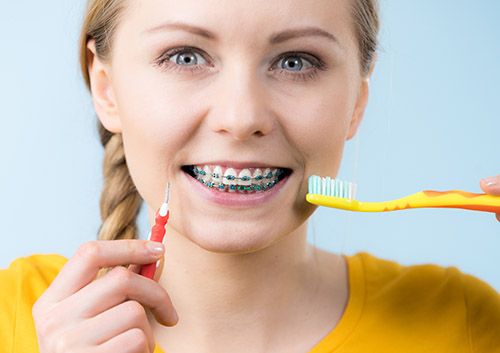What to Do When the Tooth Fairy Isn’t on Schedule
August 6th, 2025

August 22 is National Tooth Fairy Day! If the Tooth Fairy is a treasured part of your child’s life, you’re just in time to celebrate! But what to do when the Tooth Fairy doesn’t arrive on schedule—when baby teeth stay longer than expected or are lost too soon?
A baby’s 20 baby teeth tend to come in within a fairly predictable time frame. The bottom central incisors in the very front of your baby’s mouth typically make their appearance first, when your baby is around six to ten months old. Over the next few years, the remaining incisors, canines, and first molars arrive. Last on the scene are the second molars, which usually show up between the ages of 23-33 months.
Just as baby teeth follow a pattern coming in, they tend to follow the same pattern falling out. The front teeth begin to wiggle and loosen around age six or seven, while the last of the baby teeth, the canines and second molars, are often lost between the ages of ten and 12.
Baby teeth fall out as the adult teeth below them push up as they erupt. The top of the new tooth puts pressure on the root of the baby tooth, gradually dissolving it. As the root grows smaller and can’t anchor the tooth, the tooth begins to wiggle and eventually becomes loose enough to fall out. This leaves the adult tooth perfectly placed to grow into its proper position.
Sometimes, though, teeth linger far past their fall-out date. Sometimes, because of decay or trauma, they are lost much too early. In either case, Dr. Gina Pinamonti can provide treatment to protect little smiles now and to ensure that there’s space for the permanent teeth to erupt and align correctly.
Teeth Which Overstay Their Welcome
If that baby tooth never gets wiggly, the team at Gina B. Pinamonti, DDS Orthodontics can help! When baby teeth stubbornly hang on, adult teeth can erupt behind them, creating a double row of teeth commonly known as “shark teeth.” These permanent teeth can become crowded or misaligned as they try to fit in any space available. Or a baby tooth can block an adult tooth from erupting at all. When that baby tooth just isn’t budging, an extraction will create space for the permanent tooth to erupt.
Extracting a baby tooth is generally a straightforward procedure because primary teeth have very small roots. Your child’s dental team at Gina B. Pinamonti, DDS Orthodontics are experts in helping you prepare your child for the procedure in a gentle, reassuring, and age-appropriate way.
Often, a local anesthetic is all that’s necessary for a simple extraction, but if you feel sedation would better fit your child’s needs, discuss sedation options with your dentist. After the extraction, you’ll be given clear information on how to deal with pain and swelling, which foods and drinks are best while the extraction site heals, and how to protect the area.
Teeth Which Exit Too Early
In the case of decay or trauma, your child’s dentist will do everything possible to save the tooth. When decay is so extensive that there’s not enough structure left to hold a filling or crown, or when there’s an infection in or around the tooth, or when an accident or injury has caused serious damage, extraction might be the healthiest option. Depending on your child’s age, further treatment might be needed afterward to protect future smiles.
Besides their roles in eating and speaking, baby teeth save space for permanent teeth. If remaining baby teeth shift, taking up part of the empty space left behind by the lost tooth, the adult teeth below won’t have the space they need to align properly as they arrive. Permanent teeth could come in at an awkward angle or erupt in the wrong spot.
To prevent these problems, your dentist might recommend that your child visit an orthodontist for a space maintainer. Space maintainers are small, custom-designed appliances which keep the remaining baby teeth in place. This prevents neighboring teeth from shifting to fill the empty spot and ensures that there’s enough room for the adult tooth to arrive right on schedule and right where it belongs.
It’s comforting to have charts which let us know when little teeth will typically come in and when they will typically fall out. But unexpected events might mean teeth overstay their welcome or depart too soon. When the Tooth Fairy can’t keep to her schedule, schedule an appointment at Gina B. Pinamonti, DDS Orthodontics in Pittsburg, KS as soon as possible to make sure your child is on track for a future of healthy smiles.




 Website Powered by Sesame 24-7™
Website Powered by Sesame 24-7™